2014 FIFA World Cup: Assessing Macro Impacts on Decision & Behavior
VerifiedAdded on 2023/06/18
|12
|944
|135
Presentation
AI Summary
This presentation provides an overview of the 2014 FIFA World Cup held in Brazil, examining both the positive and negative impacts on the macro environment, including economic benefits and environmental concerns. It evaluates the influence of macro environmental factors using the PESTLE model, covering political, economic, social, technological, legal, and environmental aspects. The presentation also includes recommendations to minimize negative impacts and enhance profitability, such as investing in sustainable development and improving stadium infrastructure. A SWOT analysis highlights the event's strengths, weaknesses, opportunities, and threats, addressing issues like corruption allegations and racism. Essential criteria for successful event planning, such as understanding the event's purpose and knowing the target audience, are also discussed. The presentation concludes that both internal and external environmental factors significantly affect global events, emphasizing the importance of coordinating resources to achieve desired outcomes.
1 out of 12
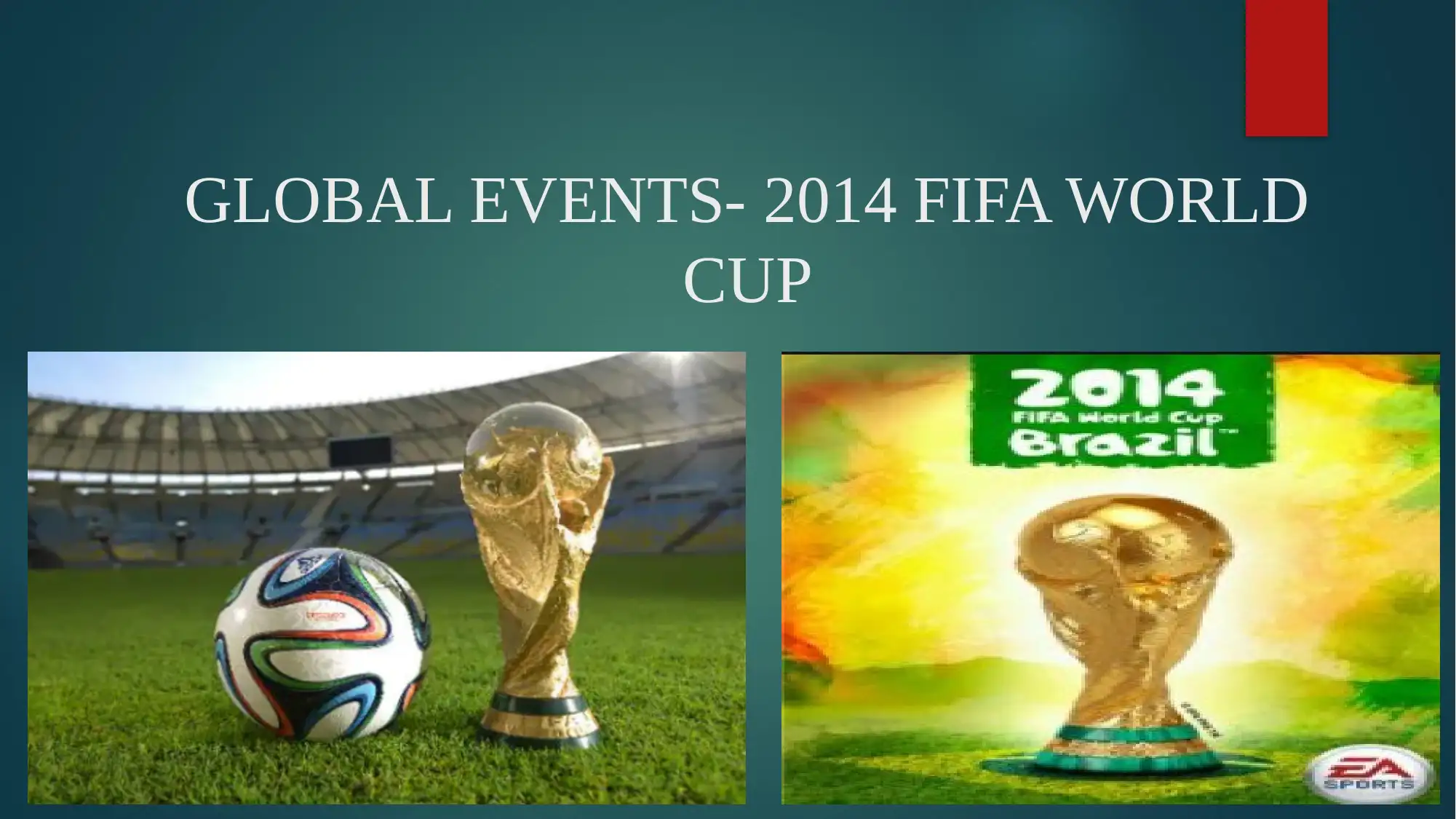
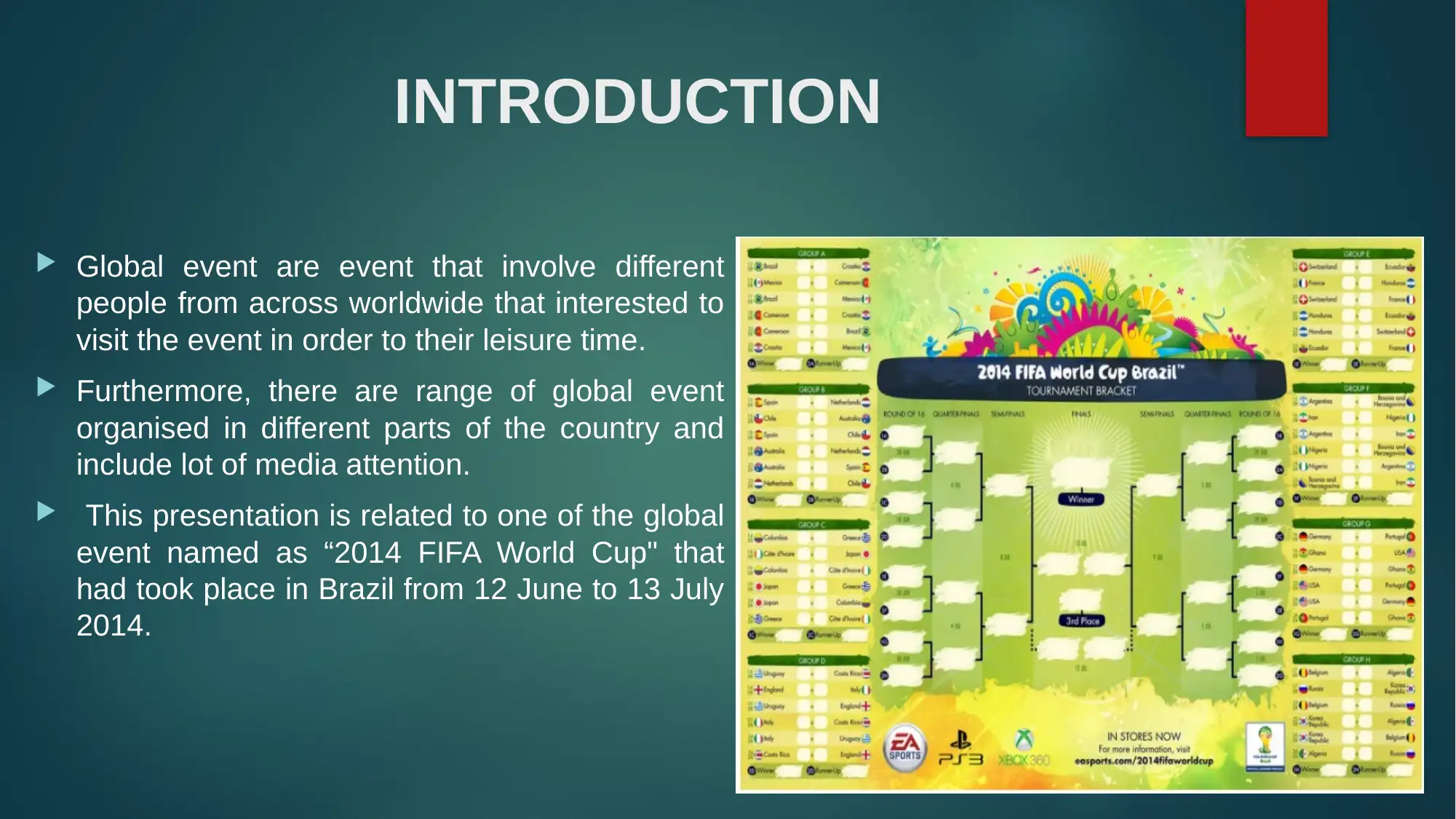
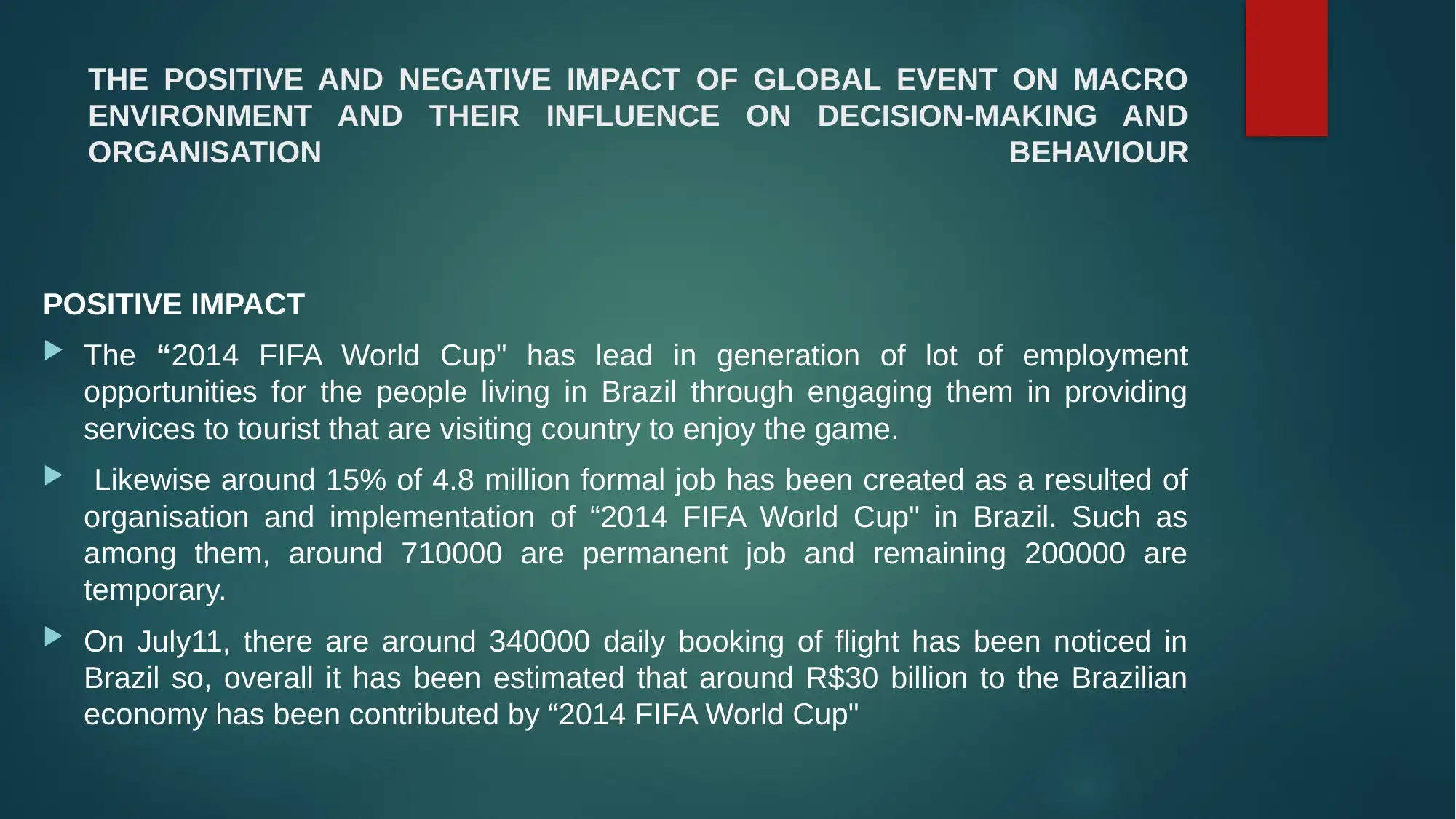

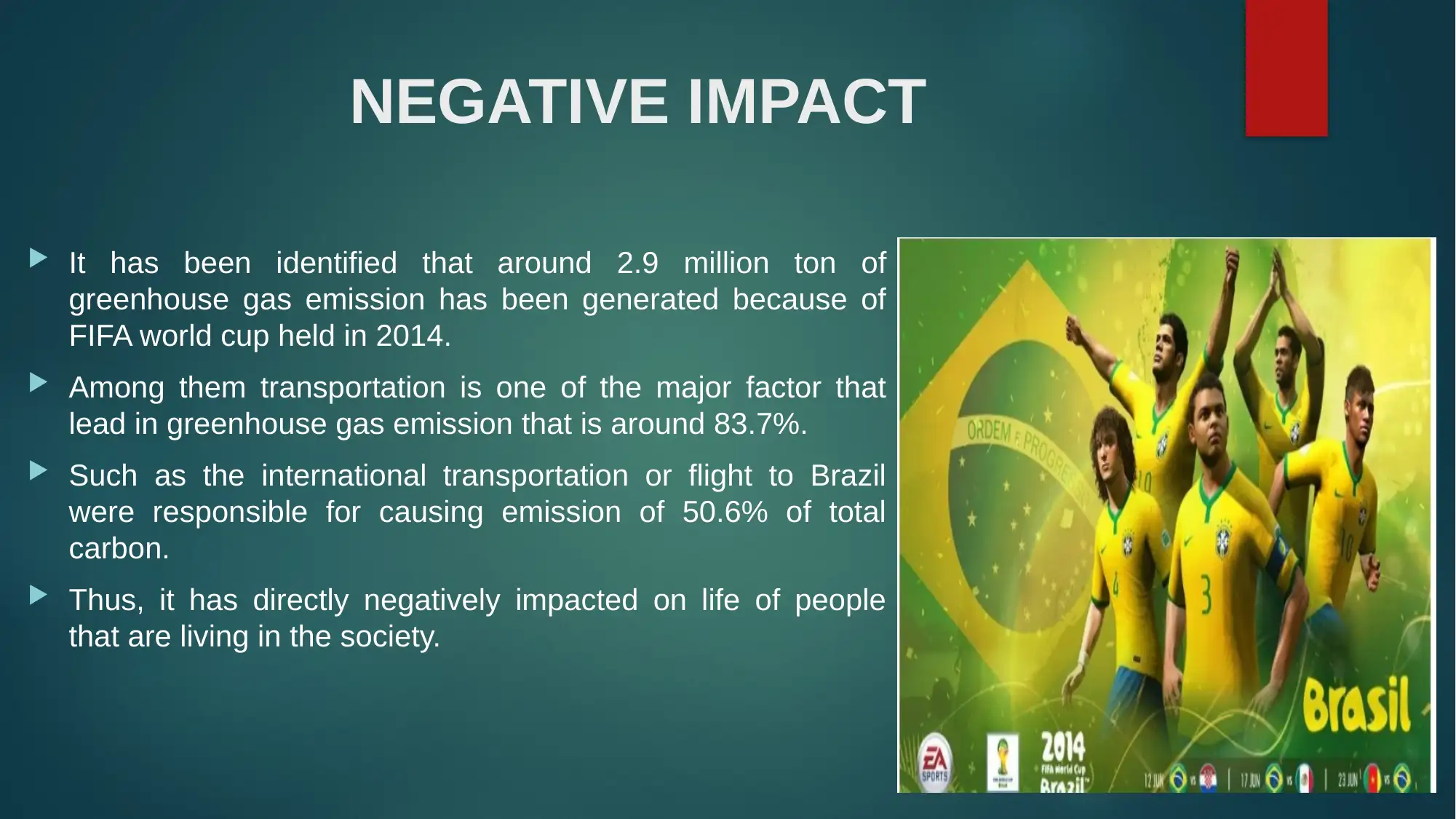
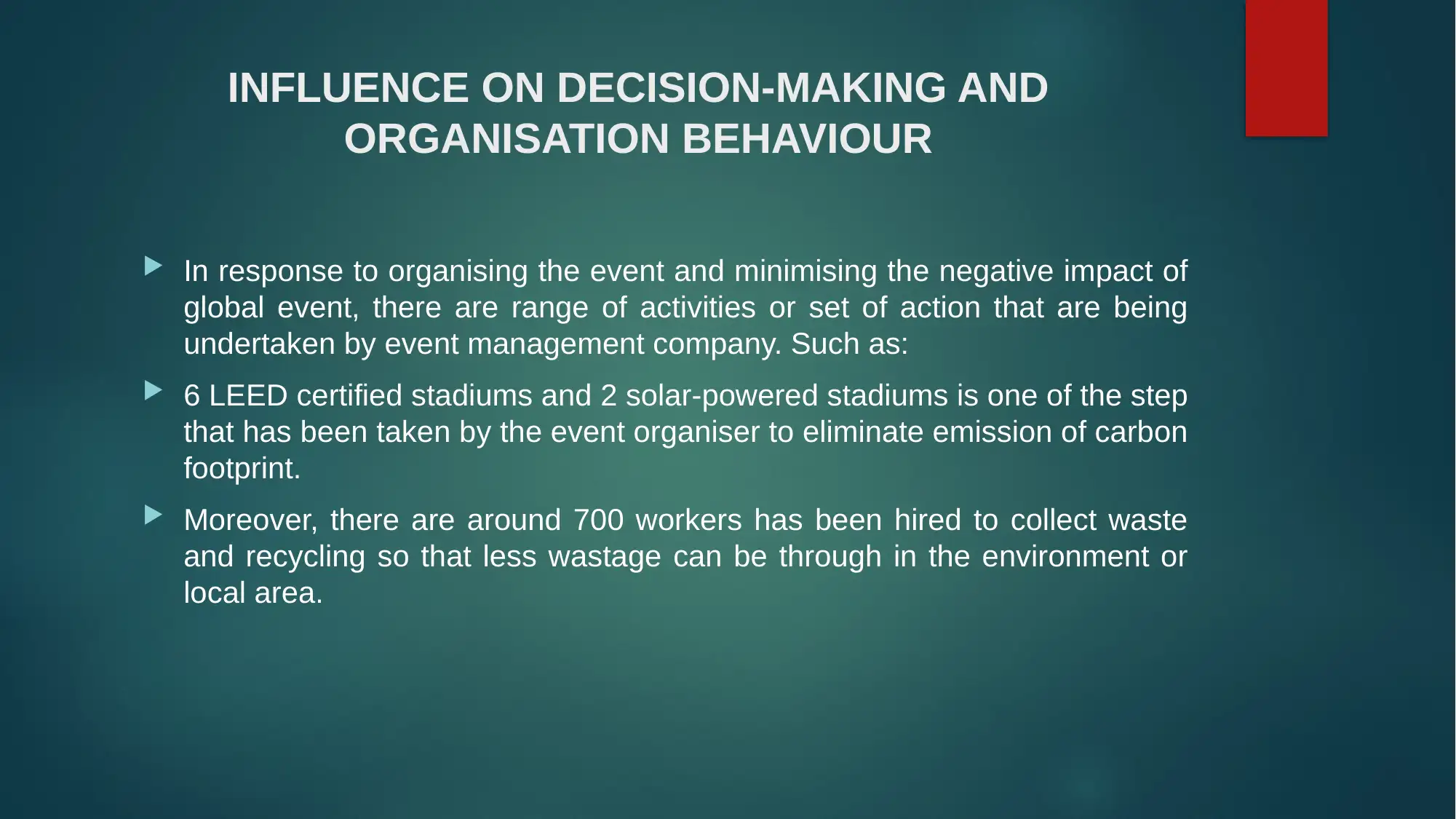
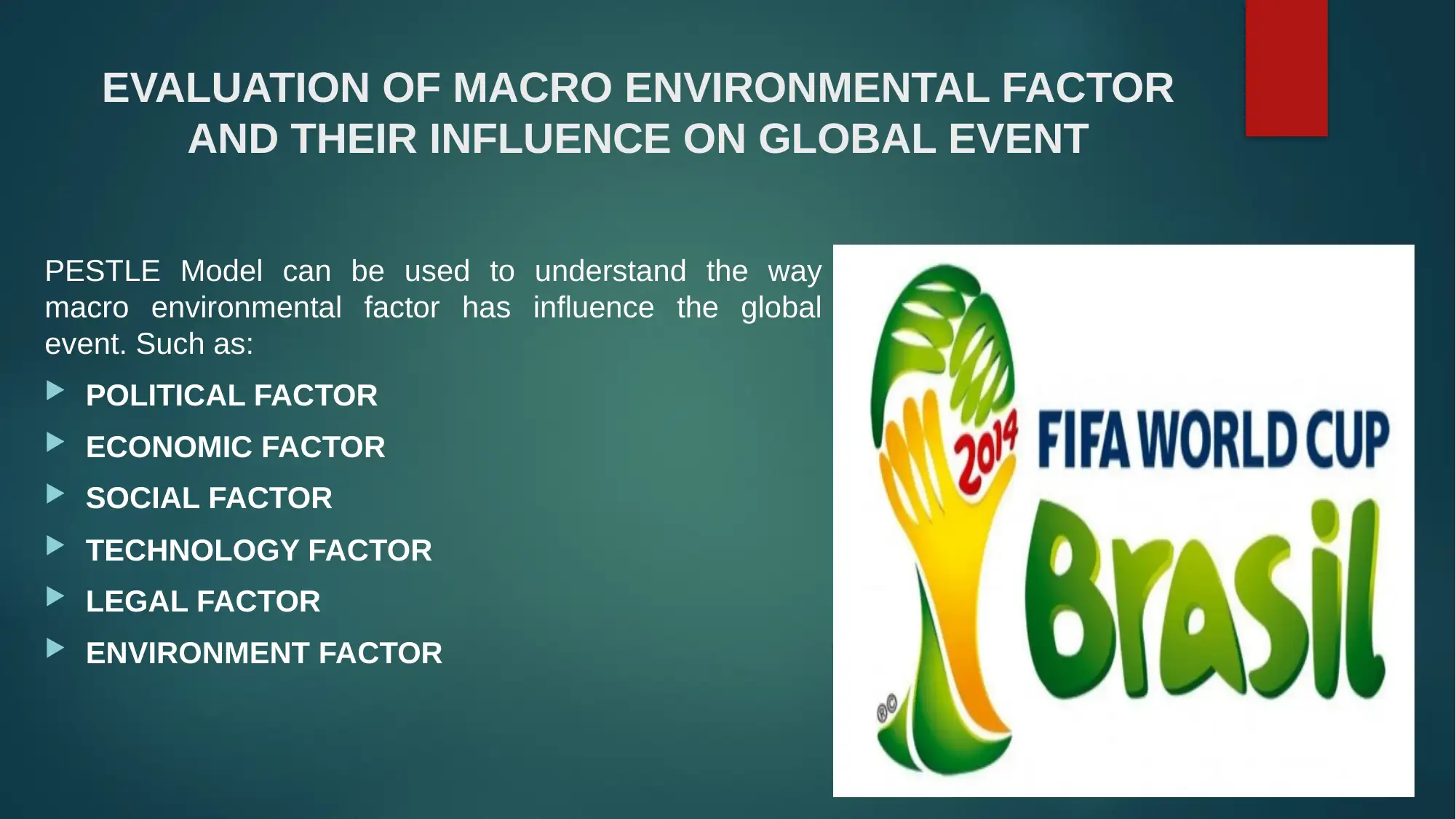
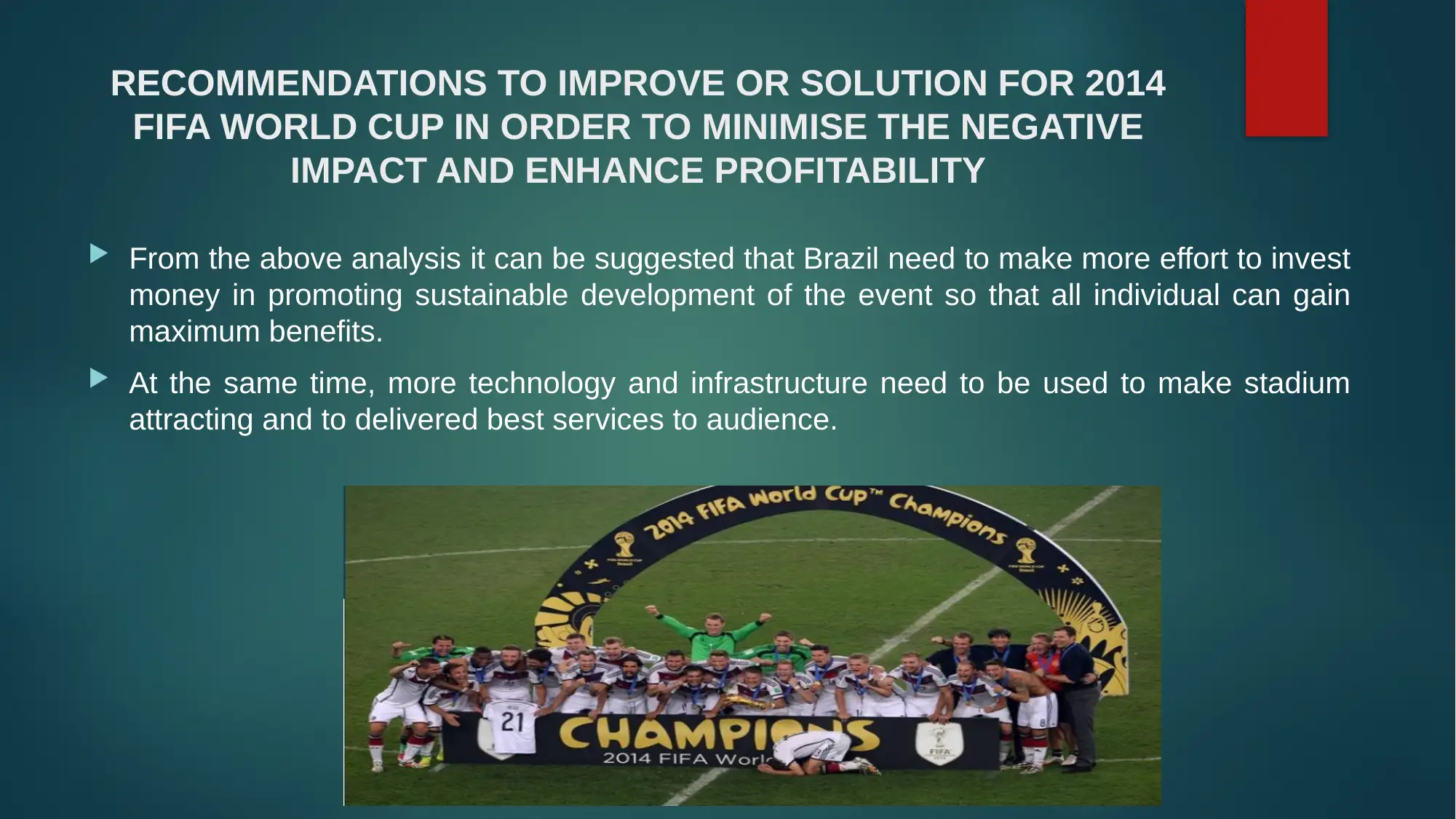
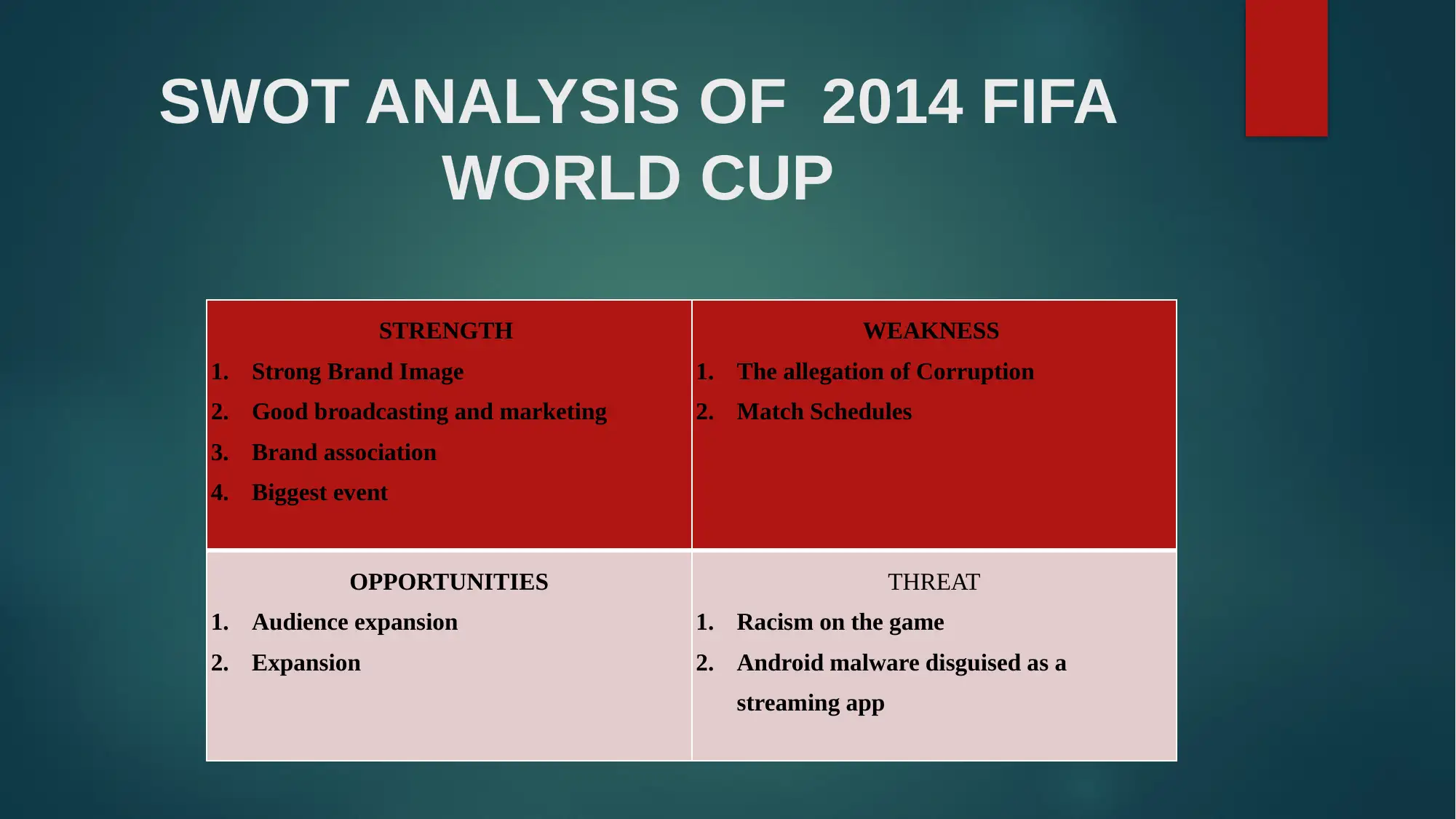
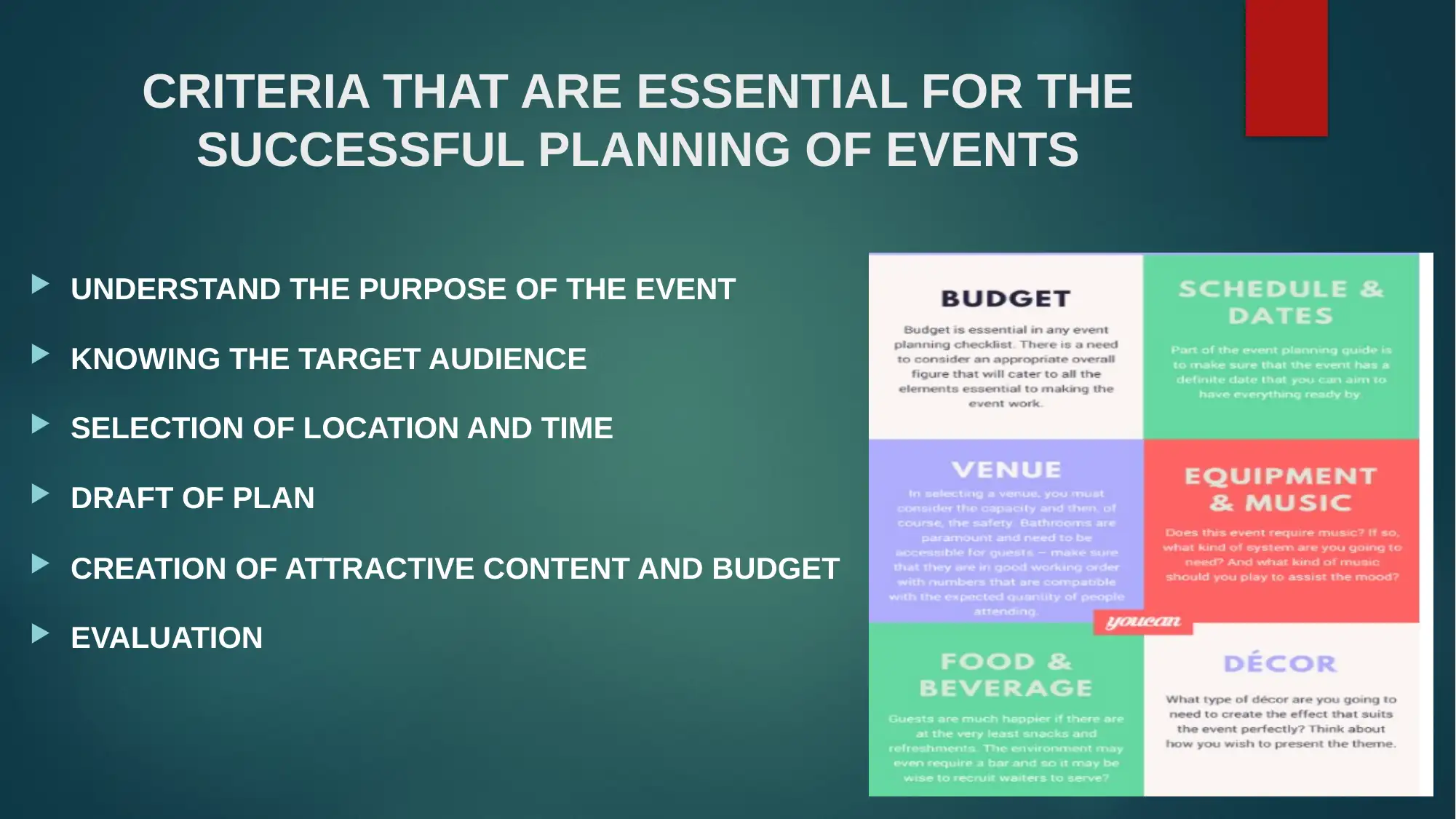
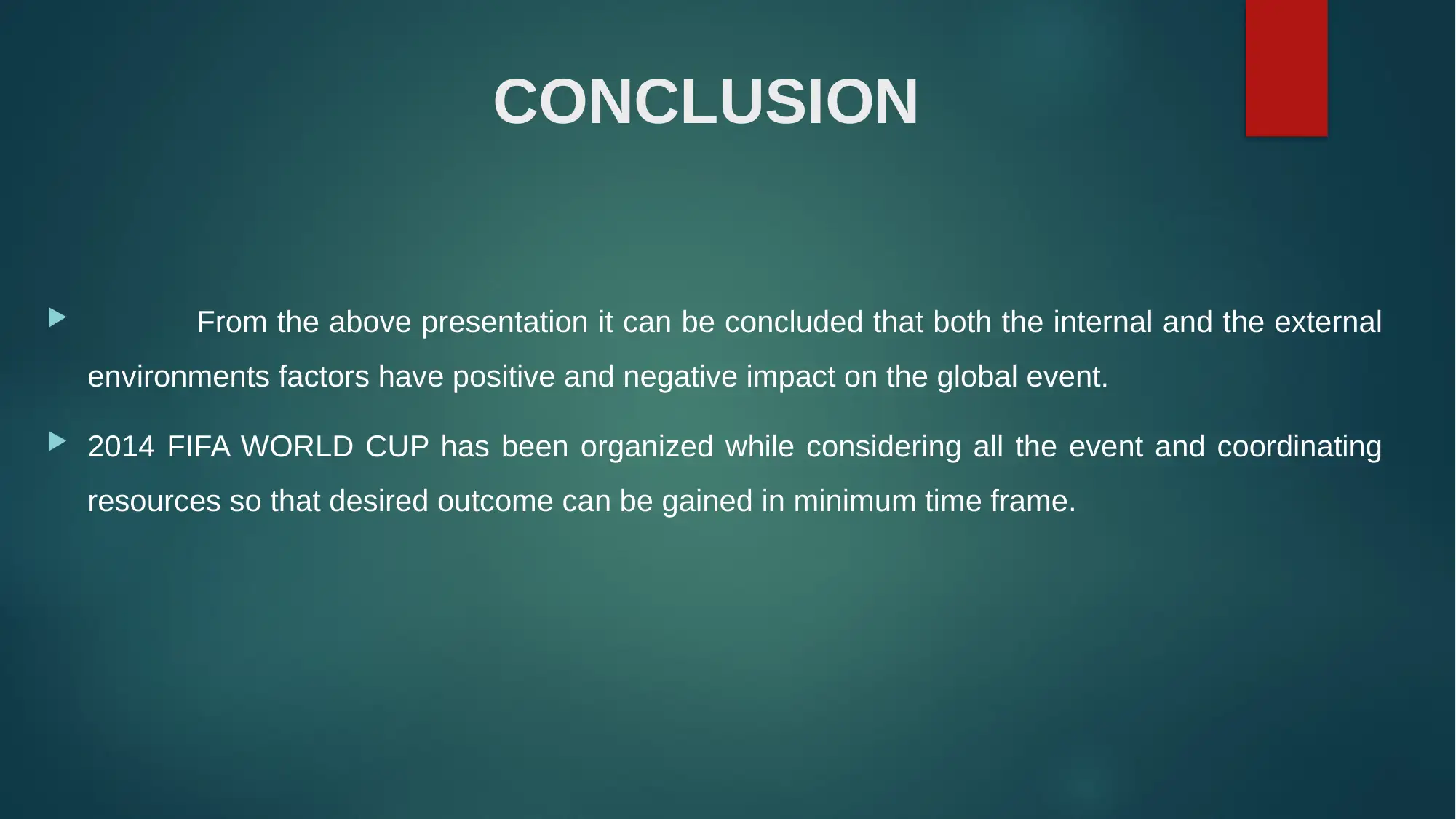
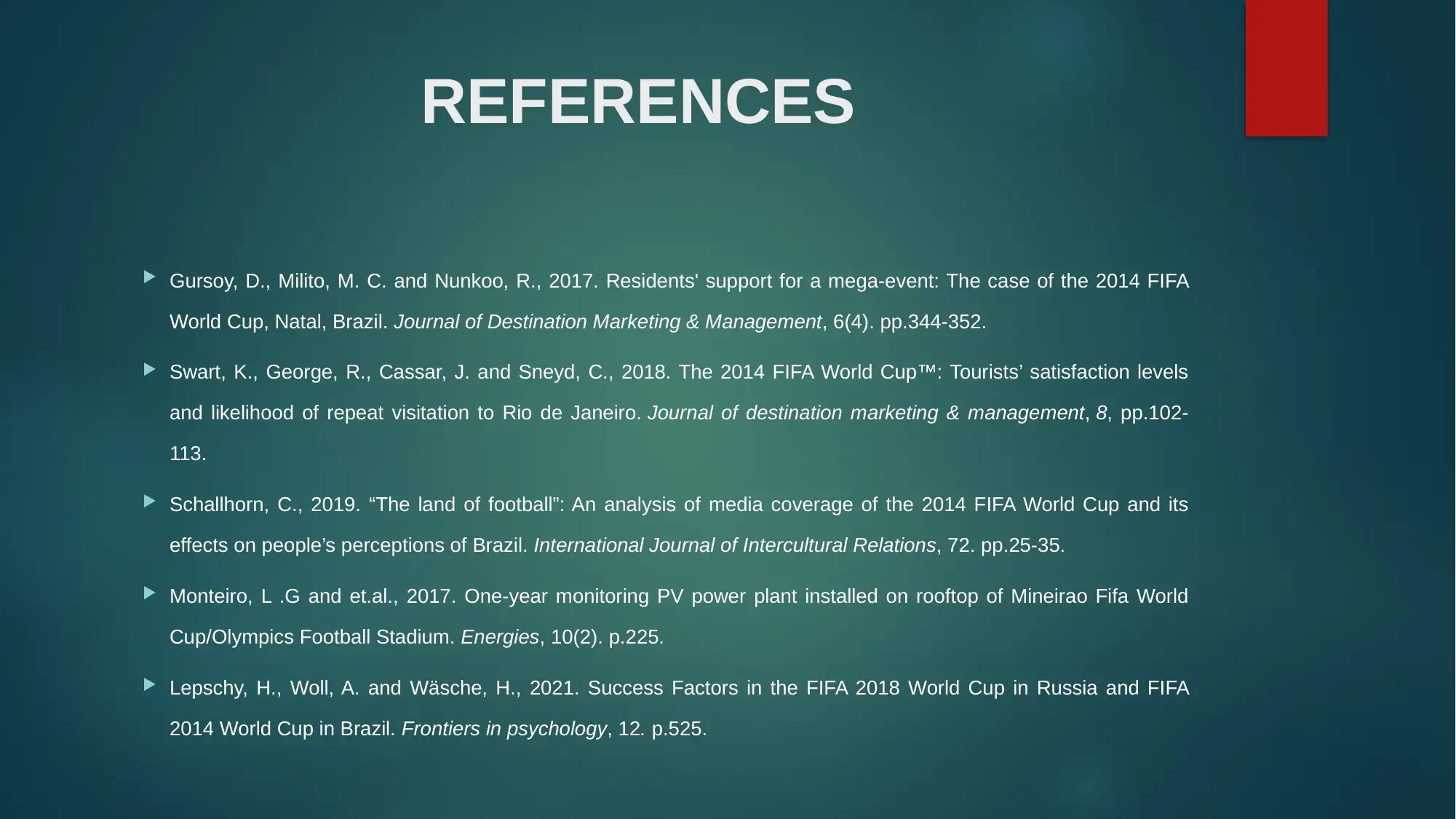






![[object Object]](/_next/static/media/star-bottom.7253800d.svg)